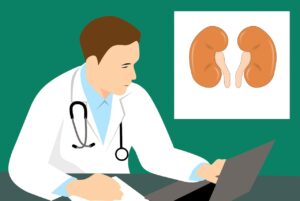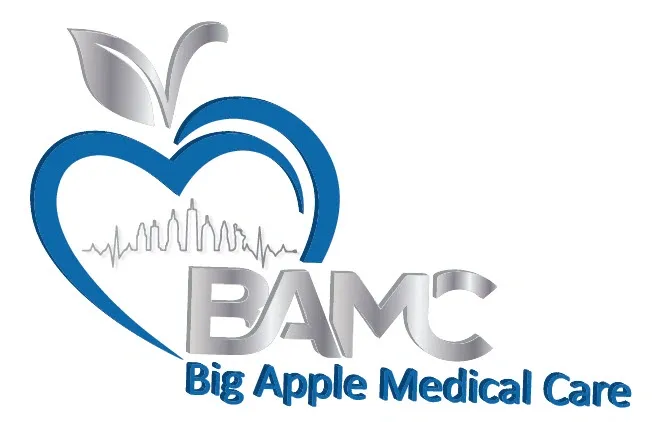What Foods to Avoid if You're Constipated?

Dealing with constipation can be uncomfortable and frustrating, affecting daily life and well-being. Many people don’t realize that certain foods can worsen this common digestive issue, making relief more difficult to achieve.
Processed foods, dairy products, red meat, and refined grains can slow down digestion and contribute to constipation. The digestive system needs proper nutrition and fiber to maintain regular bowel movements and optimal function.
The medical experts at Big Apple Medical Care guide patients through dietary changes to manage constipation effectively. By identifying and eliminating problematic foods while incorporating beneficial alternatives, patients can experience natural relief and improved digestive health.
Understanding Constipation and Diet
Diet plays a crucial role in maintaining regular bowel movements and digestive health. The foods you consume directly impact your body’s ability to process waste effectively.
Role of Diet in Digestive Health
Dietary fiber serves as the foundation for healthy digestion. Adults need 25-30 grams of fiber daily to maintain regular bowel movements.
Water intake works hand-in-hand with fiber. Consuming 8-10 glasses of water daily helps move fiber through the digestive system effectively.
Probiotic-rich foods support gut health by promoting beneficial bacteria growth. Foods like yogurt, kefir, and fermented vegetables can improve digestive function.
Regular meal timing supports natural digestive rhythms. Eating at consistent times each day helps establish regular bowel movements.
Common Foods That May Exacerbate Constipation
Processed foods contain minimal fiber and can slow digestion. White bread, refined pasta, and pastries should be limited.
High-fat dairy products like cheese can contribute to slower digestion. These foods contain little fiber while being high in binding proteins.
Red meat takes longer to digest than plant-based proteins. Limiting portions to 3-4 ounces per meal can help prevent digestive slowdown.
Dehydrating beverages like alcohol and excessive caffeine can contribute to constipation. These drinks can reduce water availability for proper digestion.
Foods high in tannins, such as black tea, may slow digestive processes. Green tea offers a gentler alternative while still providing beneficial antioxidants.
Foods to Limit or Avoid
Certain foods can slow down digestion and make constipation worse by reducing bowel movement frequency or creating harder stools that are difficult to pass.
Dairy Products and Constipation
Dairy products can be binding and contribute to constipation, especially in people who are sensitive to lactose. Cheese, particularly hard varieties, can be especially problematic due to their high fat content and low fiber.
Whole milk may slow down digestion more than lower-fat alternatives. People experiencing constipation should consider reducing their intake of cream, ice cream, and full-fat yogurt.
Consider switching to non-dairy alternatives like almond milk or coconut milk, which are less likely to cause digestive issues.
Refined Grains and Low-Fiber Starches
White bread, pasta, and rice lack the fiber content of their whole-grain counterparts. These refined grains can contribute to slower digestion and harder stools.
Products made with white flour, such as crackers, cookies, and pastries, provide minimal fiber while taking up space in the diet that could be filled with more beneficial foods.
Replacing refined grains with whole grain alternatives can significantly increase daily fiber intake. Good swaps include:
- Brown rice instead of white rice
- Whole wheat bread instead of white bread
- Whole grain pasta instead of regular pasta
Processed Foods and Fast Food Options
Processed snacks and convenience foods typically contain little to no fiber while being high in sodium and artificial ingredients. These foods can dehydrate the body and contribute to constipation.
Fast food meals are often high in fat and low in fiber. Burgers, fries, and pizza can slow down digestion and lead to irregular bowel movements.
Packaged snacks like chips, cookies, and candy provide empty calories without the fiber needed for healthy digestion.
High-Fat and Fried Foods
Foods high in saturated fat take longer to digest and can slow down the entire digestive process. Fried foods are particularly problematic as they contain high levels of fat.
Regular consumption of fatty meats, deep-fried foods, and heavily processed oils can contribute to chronic constipation.
These foods can also replace healthier, fiber-rich options in the diet, making constipation more likely.
Other Foods That May Contribute to Constipation
Chocolate, especially milk chocolate, contains compounds that can slow digestion. Dark chocolate in moderation may be less problematic.
Excessive caffeine intake from coffee and energy drinks can lead to dehydration, potentially worsening constipation.
Alcohol has a dehydrating effect on the body and can interfere with normal digestive processes. Limiting alcohol consumption can help maintain regular bowel movements.
Note: If constipation persists, consult with a healthcare provider at a medical facility for personalized dietary advice.
Lifestyle Factors Impacting Constipation
Daily habits and behaviors play a crucial role in digestive health and bowel regularity. Maintaining optimal digestion requires attention to specific lifestyle elements that directly affect bowel movements.
Hydration and Fluid Intake
Proper hydration stands as a cornerstone of healthy digestion. The body needs adequate water to keep stool soft and easier to pass through the digestive system.
Adults should aim to drink 8-10 glasses of water daily. Warm liquids, particularly in the morning, can stimulate bowel movements effectively.
Dehydration makes the colon absorb more water from stool, leading to harder, more difficult-to-pass waste. The specialists at Big Apple Medical Care recommend tracking daily fluid intake to ensure proper hydration.
Physical Activity Importance
Regular movement stimulates intestinal muscles and promotes healthy bowel function. A sedentary lifestyle can slow digestion significantly.
Aim for 30 minutes of moderate exercise, like brisk walking or swimming, five days per week. Even light activities such as yoga or stretching can improve digestive function.
Morning exercises prove particularly beneficial for establishing regular bowel movements. Physical activity helps food move through the digestive system more efficiently.
Managing Stress and Digestive Health
Stress directly affects digestive function through the gut-brain connection. High stress levels can trigger or worsen constipation symptoms.
Deep breathing exercises and meditation can help regulate the nervous system and improve digestion. The digestive health experts at Big Apple Medical Care recommend incorporating stress-reduction techniques into daily routines.
People with IBS may notice stronger connections between stress levels and digestive symptoms. Creating a calm environment during meals supports better digestion.
Regular sleep patterns and sufficient rest contribute to proper digestive function. Stress management techniques work best when practiced consistently.
When to Contact a Healthcare Provider
Contact a healthcare provider immediately if constipation lasts longer than 2 weeks or is accompanied by severe abdominal pain, blood in stool, or unexplained weight loss.
Seek urgent medical attention if constipation occurs with fever, intense stomach cramps, or persistent vomiting. These symptoms could indicate a serious underlying condition.
Warning Signs That Require Medical Care:
- Constant abdominal pain
- Inability to pass gas
- Severe bloating
- Rectal bleeding
- Narrow or pencil-thin stools
- Unintended weight loss
Big Apple Medical Care in Brooklyn specializes in digestive health issues and provides prompt evaluation of constipation symptoms. Their experienced medical team offers comprehensive care at their 7322 5th Ave location.
Patients can schedule an appointment at 718-333-5120 for assessment of chronic constipation or digestive concerns.
A medical evaluation helps determine if constipation stems from medications, underlying health conditions, or dietary factors that require professional treatment.
Early intervention by a healthcare provider can prevent complications and ensure appropriate treatment for chronic constipation.
Frequently Asked Questions
Many people struggle with identifying specific foods that trigger or worsen constipation. The right dietary choices play a crucial role in maintaining regular bowel movements and digestive health.
Which foods are known to exacerbate constipation symptoms?
Processed white bread, crackers, and pasta can slow down digestion due to their low fiber content. These refined grains have had their bran and germ removed, reducing their nutritional value.
Red meat contains high amounts of fat and iron, which can contribute to sluggish digestion when consumed in large quantities.
What are common dietary culprits that impede bowel movement?
Fried foods and heavily processed snacks can interfere with proper digestion. The high fat content in these foods slows down stomach emptying and intestinal movement.
Bananas that aren’t fully ripe contain higher amounts of starch and less fiber, potentially contributing to constipation.
Are there specific fruits that should be avoided to prevent constipation?
Unripe bananas and persimmons contain high levels of tannins, which can slow digestive processes.
White rice and other low-fiber grains may contribute to bowel irregularity when consumed in large amounts.
Does dairy consumption affect bowel regularity?
Cheese, especially aged varieties, can contribute to constipation due to their high fat and low fiber content.
Large quantities of milk and other dairy products may cause digestive slowdown in some individuals.
What are the top foods recognized for their constipating effects?
Fast food items like burgers, pizza, and fried chicken can significantly impact bowel movements due to their high fat and low fiber content.
Chocolate, particularly milk chocolate, contains compounds that may slow digestion when consumed in large amounts.
What dietary changes can lead to improved bowel movements?
Replacing refined grains with whole grain alternatives can increase daily fiber intake significantly.
Adding water-rich fruits and vegetables while reducing processed food consumption helps maintain regular bowel movements.
Limiting caffeine and alcohol intake while increasing water consumption supports healthy digestion.






